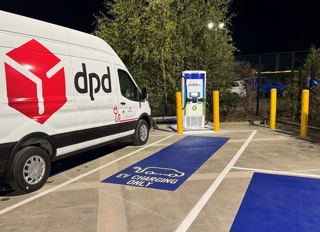Drivers with plug in vehicles are set to benefit from a £37m funding package for home and on-street charging and for new charge points for people parking plug in vehicles at railway stations.
The Government will provide 75% of the cost of installing new charge points, but businesses are set to miss out.
Instead, the cash will be made available to people installing chargepoints where they live; local authorities installing rapid charge points to facilitate longer journeys, or providing on-street charging on request from residents who have or have ordered plug in vehicles; and train operators installing new charge points at railway stations.
The £37m funding for the package comes from the Government's £400m commitment to increase the uptake of ultra-low emission vehicles and is available until April 2015.
Transport secretary Patrick McLoughlin said: "This investment underlines the Government's commitment to making sure that the UK is a world leader in the electric car industry.
"Plug in vehicles can help the consumer by offering a good driving experience and low running costs. They can help the environment by cutting pollution. And most importantly of all, they can help the British economy by creating skilled manufacturing jobs in a market that is bound to get bigger."
Business minister Michael Fallon said: "Today's announcement will make the consumer environment for plug-in vehicles more attractive and, in turn, makes the UK a more compelling place to invest. There are huge business opportunities so we're committed to ensuring the UK leads the way globally for low carbon vehicles."
The full package announced today includes: up to £13.5m for a 75% grant for homeowners in the UK wishing to have a domestic chargepoint installed; and an £11m fund for local authorities in England to install on-street charging for residents who have or have ordered a plug in vehicle but do not have off-street parking.
Authorities can apply for up to 75% of the cost of installing a chargepoint; provide up to 75% of the cost of installing rapid chargepoints in their areas around the strategic road network.
It also includes: up to £9m available to fund the installation of chargepoints at railway stations; up to £3m to support the installation of chargepoints on the Government and wider public estate by April 2015; and a commitment to review government buying standards (mandatory for central Government departments) to lower the fleet average CO2/km of new cars and encourage the uptake of plug in vehicles in central government.
Chargemaster has been working with electric car manufacturers such as Nissan, Renault, Toyota and Vauxhall to provide charging points and some 500 have been supplied over the last 12 months.
David Martell, chief executive of Chargemaster, said: "We have been lobbying the government for the last 18 months to remove the postcode lottery. Now you can operate an electric vehicle anywhere, rather than facing a postcode lottery.”
Ian Simpson, lead transport partner at Deloitte, said: “The emergence of electric vehicles as a significant alternative to conventional vehicles is proving to be a slower process than many had hoped.
“The Government first announced its commitment and funding to stimulate the adoption of electric vehicles in 2009 and the Plug-in Car Grant, launched three years ago, has led to just over 3,000 grants of up to £5,000 towards the purchase of new electric vehicles. Only 11 car models are eligible for the grant.
“This latest announcement is a further attempt to stimulate the adoption of vehicles by providing charging infrastructure. Although not new money, this and the continuation of the vehicle grant scheme could encourage the increasing use of electric vehicles.
“We are clearly still some years away from the envisaged tipping point when electric vehicles become commonplace. This quiet revolution is one that will have to be delivered piece by piece.”
The Government package also includes a previously-announced £280k of funding to expand the Energy Saving Trust's Plugged-in Fleets initiative in England to help a further 100 public and private sector fleets to understand and identify where ultra-low emission vehicles could work for them.



















Login to comment
Comments
No comments have been made yet.